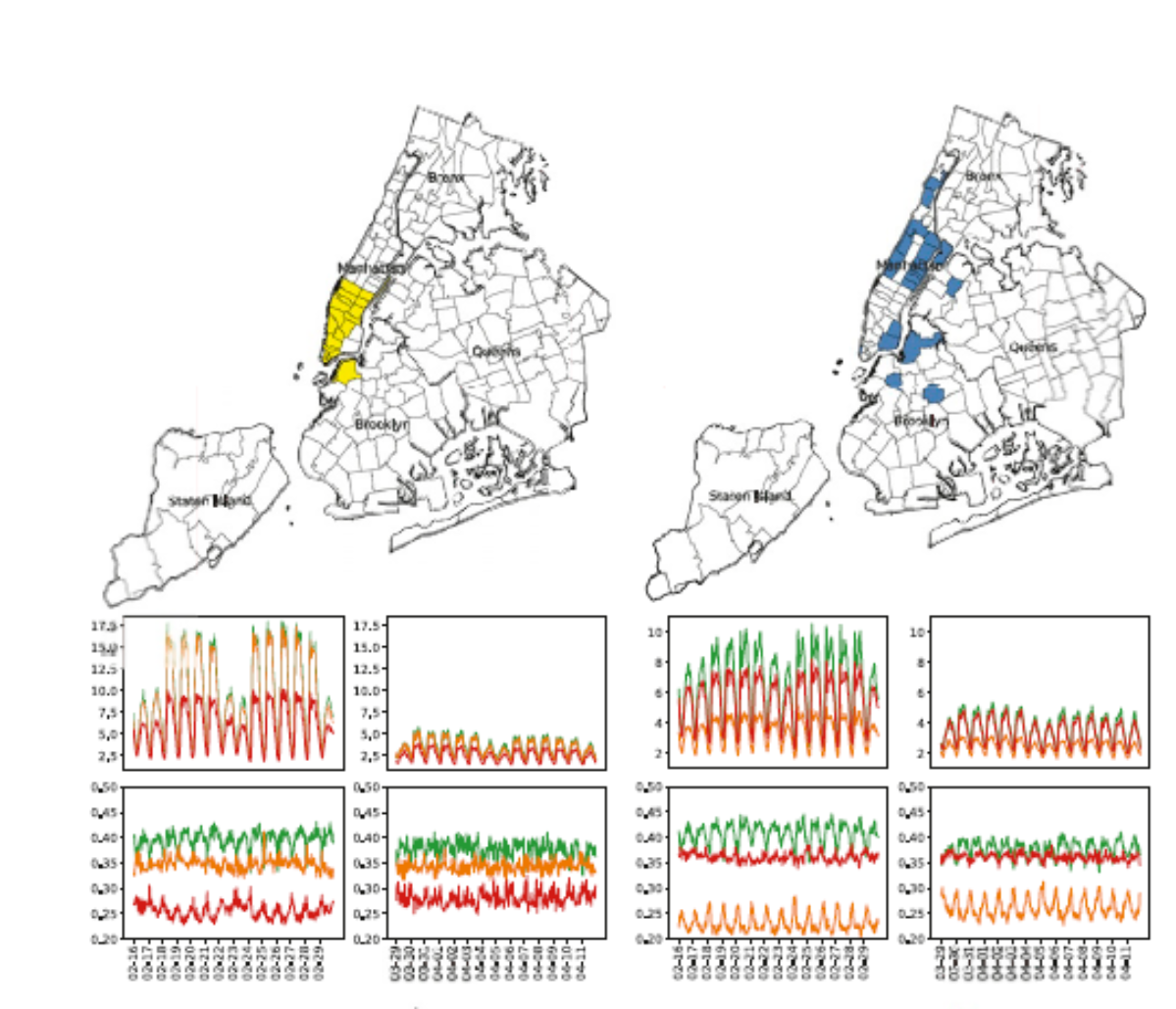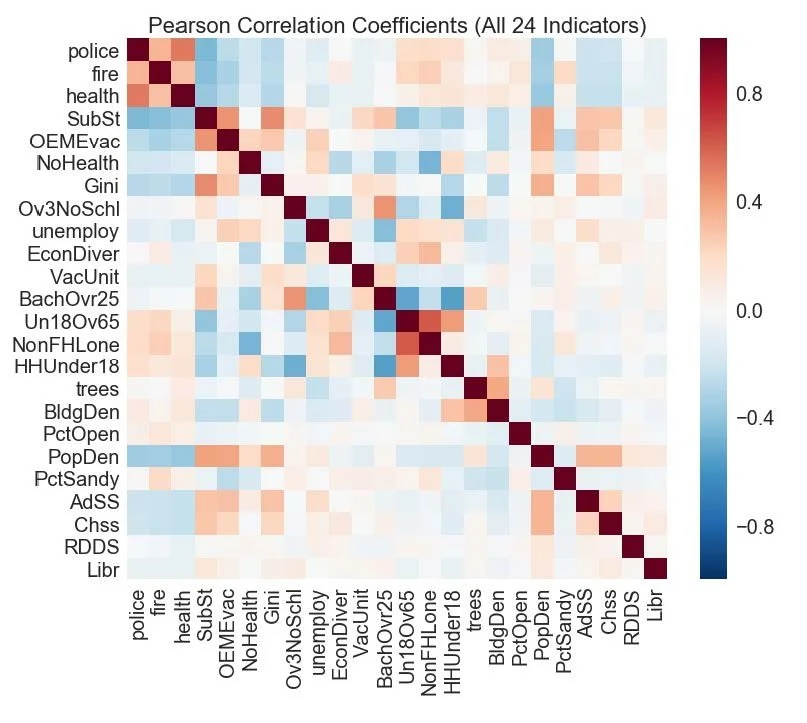Community resilience & disaster response
Cities face significant risks from extreme weather events, sea level rise, and heat waves associated with anthropogenic climate change. Between 1980 and 2000, there were a total of 51 major hurricanes, severe storms, and flooding events in the United States, resulting in more than $254 billion in damage and the loss of 1331 lives. Since 2000, the number of these events has more than doubled, to 125, with damage exceeding $1 trillion and loss of life increasing approximately five times. While the impacts of the growing frequency and devastation of climate hazards are being disproportionately felt in coastal cities, urban policy-makers and emergency responders have few tools to understand patterns of evacuation, impact, and recovery at high spatial and temporal resolutions. Our work in this area uses high-resolution data, mobility network models, and predictive risk tools to evaluate the effectiveness of, and disparities in, local evacuation behavior and to fully understand the recovery lifecycle of communities, supporting localized need-based resource allocation and long-term planning strategies.


